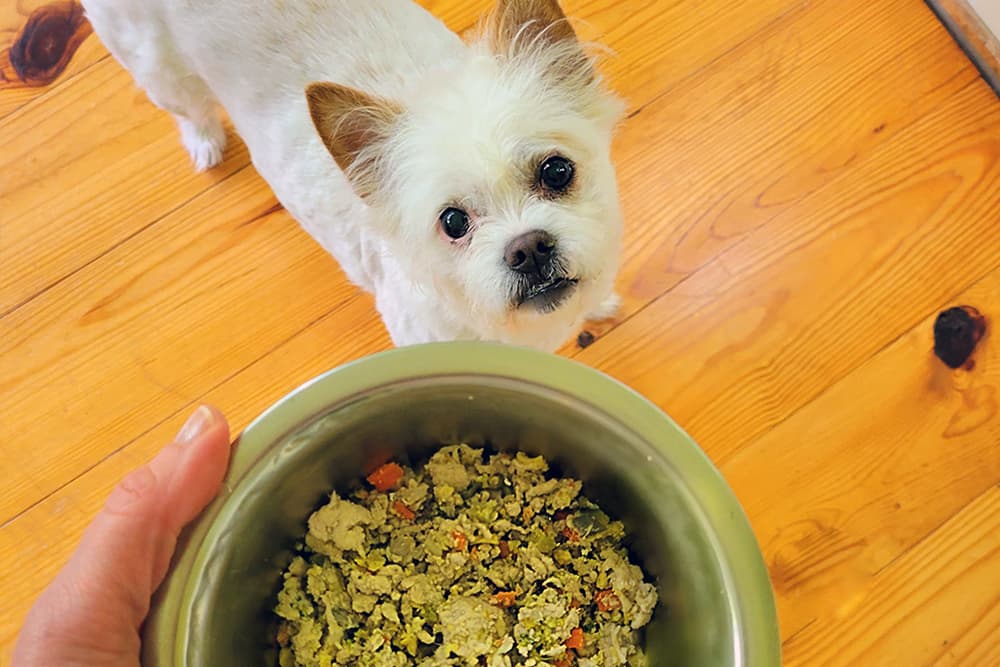Your Adult Dog: What to Expect at 1-2 Years
Updated on September 19, 2024

This age is crucial in determining the adult dog your puppy will become. This is the time when he is solidifying his status in his environment. During this period, your dog is much like a new college graduate trying to establish his place in the world. You must be vigilant to watch for behavior problems that may arise. This is what you can expect from a dog at 1-2 years.
All featured products are chosen at the discretion of the author. However, Vetstreet may make a small affiliate commission if you click through and make a purchase.
Physical and Mental Development
By the end of this stage, your dog will reach his full physical maturity and his skeleton will be fully developed. Mentally, he will be as alert and as highly attuned to his surroundings as ever. It is important to spay or neuter at this time (if he hasn’t already been altered) to prevent unplanned pregnancies and to greatly reduce the risk of many common cancers and other reproductive diseases in your dog.
This stage of life is all about establishing leadership. Your dog may seem to disobey and challenge you daily; this may seem to center around his walk and at meals. Keep a handle on your leadership role, with gentle, yet firm, consistent training, and he will eventually grow out of this phase with a good understanding of who is in charge.
Behavior Changes
Biting is one of several behavioral challenges that may show up at this stage, and it’s arguably the most serious. Dogs generally bite because they feel threatened. A dog may bite to protect his territory, or he may bite if suddenly disturbed when eating or sleeping.
Nipping and biting is serious stuff. Puppies need to learn it is never OK to use teeth on a person. Most young puppies will learn to stop play biting if you give a loud, sharp squeal and then redirect his play to an acceptable chew toy. If your adult dog still struggles with biting, correct him with a sharp “no,” stop play immediately and ignore him for a few minutes to create a “time-out.” If the biting continues, consult a trainer immediately to prevent a tragedy later.
Health and Nutrition
When your dog was younger, you likely visited your veterinarian regularly for de-worming and vaccinations. Don’t slack off as your dog grows older. You should already be using year-round heartworm prevention and good flea and tick products. Fleas and ticks are ubiquitous external parasites that demand control.
Fleas can cause plenty of misery, and some dogs are so allergic to fleabites that they will tear themselves to pieces trying to satisfy the urge to scratch. The good news is that there are many quality products available today to safely and effectively keep your dog and his indoor environment flea free.
Ticks are dangerous because they can transmit several serious diseases, including ehrlichiosis, babesiosis, Lyme disease and Rocky Mountain spotted fever. Now more than ever, there are some very safe and effective products available to protect your dog from ticks. Topical products are available that will prevent ticks from biting and keep them off of your dog for up to a month with just one application. You should consult your veterinarian about what products or combinations are best for your dog and lifestyle. You should still check your dog for ticks regularly.
Tweezers or tick removers are the best choice for removal, but you want to be careful not to squeeze the tick or leave a portion behind. Do not remove a tick with your hands. Common sites to find ticks are around the neck, ears and on the legs.
Heartworm is an internal parasite that is spread by mosquitoes. Prevention is easy and much better than trying to treat a heartworm infection. If your dog has not already been tested and started on heartworm prevention, do not delay. Your veterinarian can help you select the best product for your dog.
Set your dog up for a lifetime of good health by considering a digestive support supplement such as Great Poop. Available in a handy chewable form, dogs love the chicken flavor, and pet parents love the affordability, quality, and ease-to-dispense aspects. Always talk to your veterinarian when adding new supplements to your dog’s diet.
Don’t ignore your best friend’s teeth either. A “yuck” mouth can be associated with pain and both oral and systemic diseases. Oral bacteria have even been linked to heart disease. Crunchy dog food and biscuits act as scrubbers to help keep teeth clean, but this alone is not enough to prevent dental tartar and periodontal disease. Brush your dog’s teeth, too, with flavored toothpaste made especially for dogs. If you start slowly, you will find that your dog will learn to love this ritual.
Do not use human toothpastes since they contain fluoride that is not safe for your dog to ingest. Your veterinarian will check your dog’s teeth during regular physical exams, and periodic dental cleanings (under anesthesia) may be recommended to keep your dog’s mouth healthy.
The Importance of Dog Health Insurance
Dog health insurance can help you pay for unexpected health expenses, surgeries, or medications of senior dogs. It’s important to purchase insurance before there’s a problem. While pet insurance may add to your monthly expenses, it can save you hundreds or thousands of dollars in the long run.
Don’t ever let financial decisions get in the way of your dog’s care. Review personalized options for your pet below:
Training Tips
You have probably figured out by now that your dog won’t change his bad behavior unless you show him how to behave correctly. It is never too late to train your dog. Expect success, and watch him transform before your eyes. Good behavior on the outside reflects a confident, comfortable and secure dog on the inside. If you get frustrated during a training session, stop, and end on a positive note.
You can’t just take your dog to eight weekly obedience classes and consider him trained. Training is a lifelong pursuit. Here are two things to keep in mind when training your dog: Be on the same team and be positive. It is not you versus your dog. You two are on the same team working toward the same goal. He will learn more quickly if he is an essential part of your life. Let him practice the command “sit” when you’re making dinner and come with you to get the paper or mail. Stay positive in attitude and rewards. Well-timed treats and words of praise are essential to your dog’s learning process.
Pro tip: Be sure to use high-value dog treats to reward your very good pup!
Praise is free, so use it abundantly. Let him know when you’re proud of him. He will reward you with a bright, eager face and a big wag of his tail.





